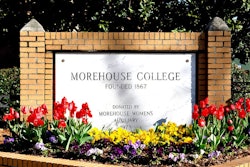After a college football season blemished by charges of rule-breaking agents and athletes, legislators from New Jersey to Oregon are looking to make it tougher on those who contact players improperly.
Lawmakers in New Jersey and Virginia, two of the eight states that lack sports agents laws, now want to add such legal protections. Six other states are considering proposals to strengthen the Uniform Athletes Agent Act, a model law that suffers from neglect in many states.
That includes Arkansas, where 89 House members voted unanimously on Wednesday to make violations of its agent laws — previously a misdemeanor — a felony offense.
Those pushing for changes on the state level aren’t waiting for either the NFL or the NCAA to act. Four months ago, both entities joined the NFL Players Association, the American Football Coaches Association and several prominent agents in forming a 22-member panel tasked with cleaning up the situation.
“Up to this point, we’ve had laws on the books, but there hasn’t been much interest or effort from the enforcement side,” says Oklahoma state Rep. Todd Thomsen, a Republican who was the punter and kicker on the University of Oklahoma’s 1985 national championship team.
An August 2010 review by The Associated Press found that more than half of the 42 states with sports agent laws didn’t revoke or suspend a single license, or invoke penalties of any sort. Neither had the Federal Trade Commission, which in 2004 was given oversight authority by Congress.
The proposed Oklahoma measure broadens the definition of agent to cover financial planners — player reps who don’t negotiate contracts but still have a financial stake in a college athlete’s future earnings — while increasing the minimum fine for violations from $1,000 to $10,000 and the maximum from $10,000 to $250,000.
“We have such a minimal penalty, for most of them it’s worth it just to do business here,” Thomsen says.
In Oregon, lawmakers are considering a proposal that also broadens the definition of sports agents to include not just financial planners but also contract advisers and those who seek to represent high school athletes.
Jeff Hawkins, director of football operations at the University of Oregon, plans to testify in support of the proposal. He’s also a member of the NCAA panel considering even broader changes.
“Enforcement really is the key to everything,” he says.
Hawkins says the panel members — including the presidents of the NFL’s Atlanta Falcons and Indianapolis Colts franchises as well as the Big Ten and Southeastern Conference commissioners — have tentatively agreed to a broader definition of agent that applies to any person who directly or indirectly “seeks to represent or gain financially” by representing or marketing a college athlete.
That expanded definition could potentially be applied to athletes’ immediate family members, people like the father of Heisman Trophy winner and Auburn University quarterback Cam Newton.
The NCAA determined Cecil Newton sought $180,000 from Mississippi State University in exchange for his son’s agreement to play for the school after junior college. The NCAA did not punish Cam Newton for the violation his father committed because it said it found no evidence that the player or Auburn knew about Cecil Newton’s pay-for-play scheme.
The panel, which meets again next month, is also discussing a “universal recruiting calendar” that would proscribe when agents can contact potential clients on campus, similar to the NCAA’s recruiting calendar for coaches.
The NCAA is also pushing for a national registration system that would allow schools, state regulators and athletes to verify an agent’s qualifications and legal status through a single database, Hawkins says.
An NCAA spokeswoman says the group “continues to make progress in identifying potential solutions,” including a discussion of “post-NCAA financial penalties” for prospective pros who lose their college eligibility for receiving improper benefits from agents.
NCAA rules allow agents to meet with college athletes but forbid those students from entering into contracts with agents or accepting meals, gifts, transportation or other financial incentives.
But the NCAA rules apply to athletes and schools, not the agents themselves. The NFLPA and other unions set rules for agents, but those focus more on the relationships with current pros rather than potential clients still in school.
Reports of high-profile players under investigation for alleged improper contact with agents dominated much of the 2010 college football season, with NCAA and internal investigations of the Universities of Alabama, Georgia, North Carolina and South Carolina.
Those inquiries led to several teams losing key players for significant chunks of the season, including Georgia star receiver A.J. Green, who was suspended by the NCAA for four games after selling a game jersey from the 2009 Independence Bowl for $1,000.
In Chapel Hill, six prominent Tar Heels lost eligibility for the season in a probe of improper benefits from agents that later expanded to include possible academic misconduct. A UNC assistant coach resigned in September amid questions about his close friendship with a California sports agent.
Hawkins says the Oregon legislation was a direct response to the situation in Chapel Hill. But not all states are scurrying to change how they do business.
In Missouri, 69 agents are registered with the state Division of Professional Registration, and the office has received no complaints nor imposed any penalties on agents. “The law works very well,” says agency spokesman Travis Ford, adding that, “No changes are contemplated.”
Hawkins, who has also coached at Dartmouth College and Tulane University and worked in the New England Patriots’ front office, says tougher rules are needed to keep unscrupulous agents from persuading marginal pro prospects that they should leave school before graduation in search of fame and riches.
“It’s not the 30 or 40 kids (who declare early for the NFL draft),” he says. “It’s the thousands of them who think they should come out early.”
He’s optimistic that change will come, whether at the state level or within the NCAA and at the pro level.
“We’ve been fighting this battle for a long time,” Hawkins says. “I finally think we’ve got people’s attention.”















